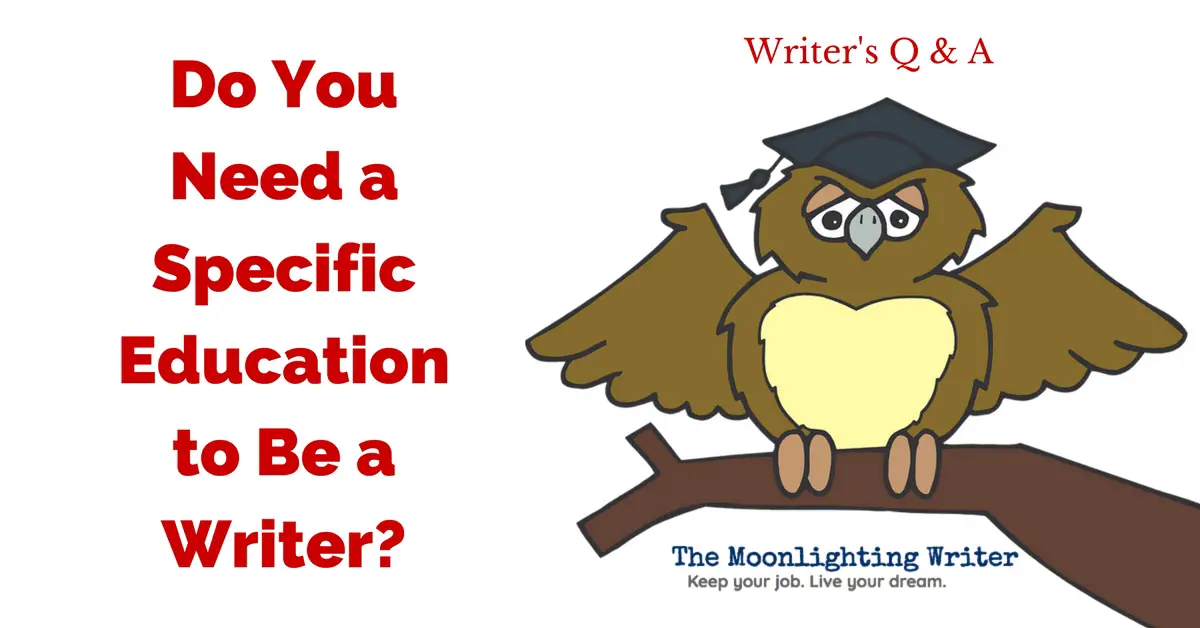There are no specific educational requirements for becoming a professional writer. The rules of grammar and punctuation that you learned in high school will give you the basic skills you need to start honing your craft.
However, particular types of writing jobs at certain career levels generally do require more advanced training, and all writers should consider themselves to be in a state of perpetual learning.
Preparing for a Career in Writing Before College
Students who aspire toward a career in writing often get their start in high school or before. Beyond standard and advanced English classes, some school activities which provide the opportunity to practice writing include:
- School Newspaper
- School Website
- Yearbook Committee
- Clubs (particularly Spanish, French, Latin, etc.)
- Theater
In addition, students might work at a local newspaper to gain journalism experience or volunteer to work in the school office in order to get a feel for business writing.
Degrees Related to Writing
Of course, many students who want to be writers major in English Composition in college. It’s a natural fit and can serve students well when searching for their first job.
According to the U.S. Bureau of Labor Statistics (via Study.com), most employers do prefer or require that their new writers have at least a bachelor’s degree. Beyond composition, other college majors which are attractive to employers looking for writers are:
- English Literature
- Communications
- Public relations
- Journalism
- Advertising
If you’re interested in technical writing, then you often need some formal training in your area of expertise (information technology, medical devices, electronics, etc.). Attaining an undergraduate degree in one of the sciences requires a decent amount of writing and may help you get your foot in the door of a writing career.
Advanced Degrees
If you have designs on teaching writing or English in general, then you’ll usually need to continue your education beyond a bachelor’s degree. Many states require a BS or BA degree for teachers in public education, with the expectation that educators eventually complete a Master’s degree.
Becoming a college professor requires a Ph. D. (most of the time) in the subject matter of choice, and English is no exception. It may be possible to become an adjunct instructor with a Bachelor’s degree, but tenure-track or research positions have more stringent requirements.
Becoming a Published Author
So you can see that there are definitely educational requirements for some types of writers, especially those who work for companies. These prerequisites often apply most strongly to entry-level employees, though. In the case of technical writers or other professional scribes — journalists, freelancers, etc. — any real-world experience you have may trump your lack of educational background.
And if your goal is to become a published author anywhere but peer-reviewed journals or other academic outlets like textbooks, then there really is only one requirement: you have to be able to tell a compelling story and tell it with solid grammar and punctuation.
Especially today, in the latter half of the 2010s, the world is wide open to folks who want to write. Thanks to the advent of self-publishing, you can get your work out there in front of the world without the traditional barriers of agents and monolithic book companies where your writing gets lost in the churn of thousands of other hopefuls.
Now, you can publish your book someplace like Amazon Kindle and let it sink or swim on its own merits.
There are still gatekeepers who will determine your success and failure, but now those people are your actual customers — the readers.
Never Stop Learning … and Improving!
Depending on your writing goals, you don’t need any specific education to attain them beyond knowing how to write clear, clean prose.
What you do need, however, is a commitment to lifetime learning and improvement.
Seek out ways to make your stories more compelling.
Learn all you can about powerful word choices and story constructs.
Always strive to improve your craft.
Because, in the end, the tales you tell are imminently more important than the degrees on your wall.
—
What sort of education or training to you think is most important for writers? Tell me about it in the comments section below.
